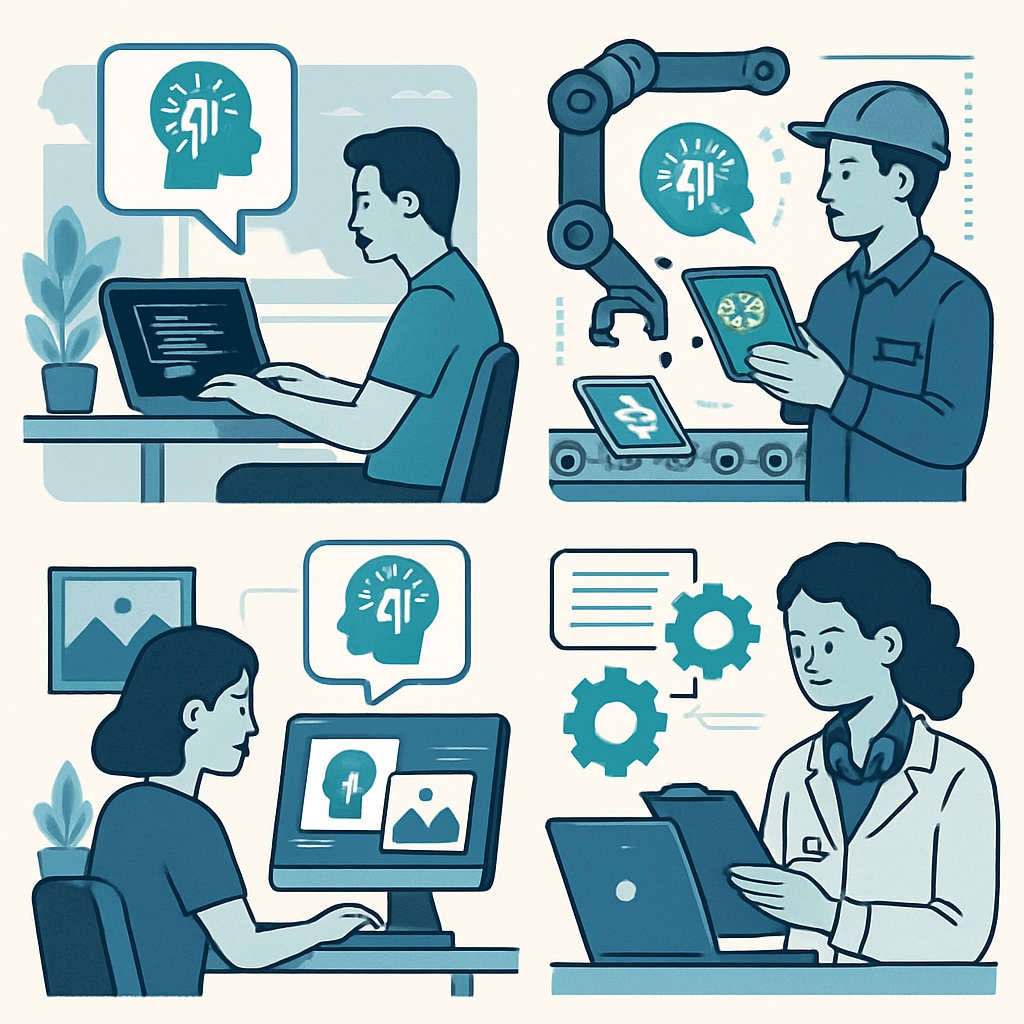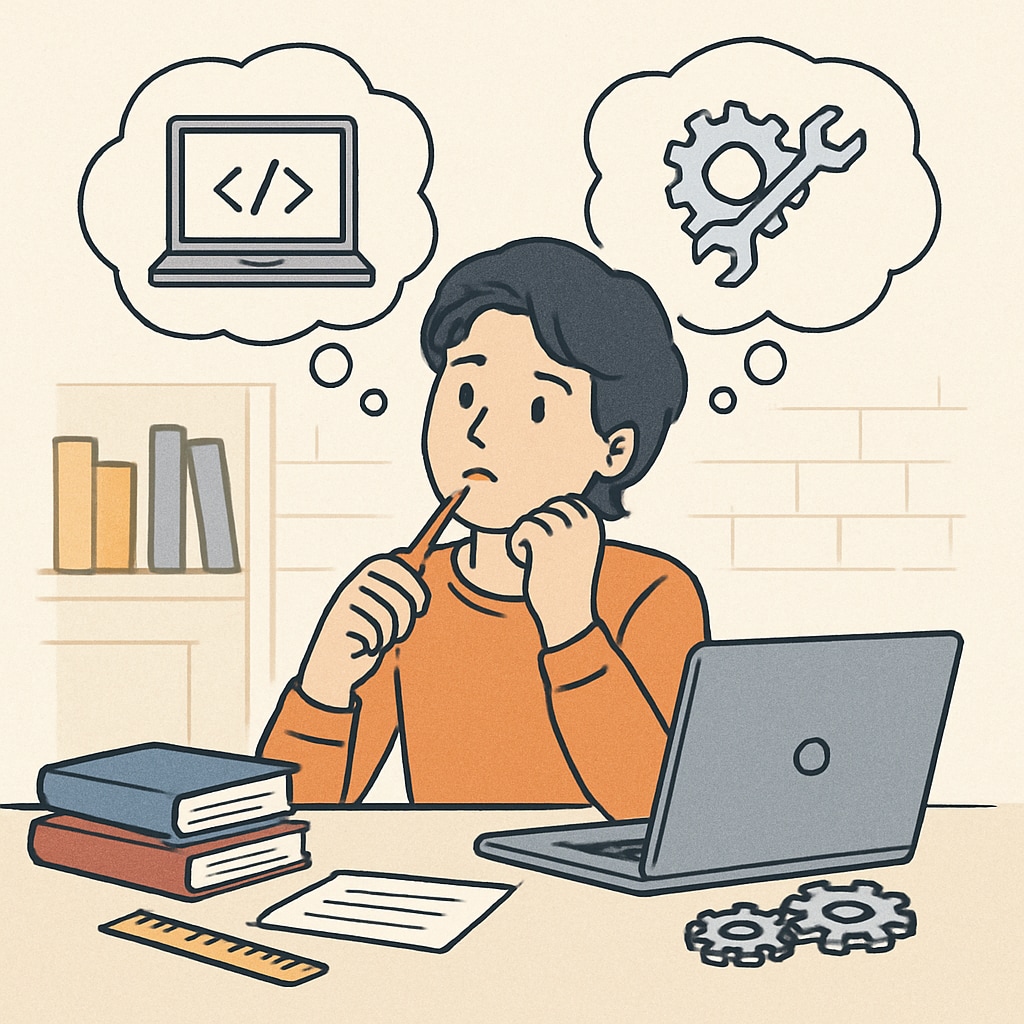In today’s rapidly evolving technological landscape, the rise of artificial intelligence (AI) is reshaping industries and creating uncertainties about career paths. Many young people, particularly 8th-grade students, are grappling with dilemmas surrounding career choices—should they pursue programming or engineering? The impacts of AI on these professions spark concerns about their future relevance and stability. This article delves into these challenges and provides actionable advice for teens and their guardians on how to adapt to the AI-driven future.
Understanding Career Choices in the AI Era
Career options for teens today are starkly different from those available to previous generations. The proliferation of AI technologies has introduced automation, streamlined tasks, and even created new professions. For example, programmers play a critical role in developing AI algorithms, while engineers design the hardware and systems where AI operates. However, both professions face challenges due to automation and evolving job demands.
Parents and educators often encourage teens to choose careers that align with their strengths and interests, but the AI era has added layers of complexity. For instance, programming jobs may demand constant upskilling to stay competitive, while engineering roles might require expertise in AI integration. These uncertainties make it imperative for students to consider long-term career resilience.

Programmer vs Engineer: A Closer Look
The programmer and engineer professions are often seen as foundational in the AI era. However, they differ significantly in scope and skill requirements:
- Programmers: These professionals focus on software development, coding, and creating algorithms for AI systems. Their work is essential to AI’s functionality, but it requires adaptability to keep pace with emerging programming languages and frameworks.
- Engineers: Engineers design and maintain the physical systems, such as robotics or AI-enabled machinery, that house AI technologies. They often need expertise in mechanical, electrical, or systems engineering, alongside knowledge of AI integration.
While both roles are intertwined with AI, they present different challenges and opportunities. Programmers may face competition from automated coding tools, whereas engineers might encounter shifting demands as AI moves from theory to practical applications.

Preparing Teens for AI-Driven Careers
To ensure success in the AI era, teens should focus on key strategies to future-proof their career paths:
- Develop Versatile Skills: Encourage teens to cultivate a mix of technical and soft skills. For instance, programming languages like Python and JavaScript are essential for programmers, while engineers should focus on mathematics and systems design.
- Embrace Lifelong Learning: Both professions require continuous education to stay ahead of technological advancements. Platforms like Coursera and Udemy offer courses tailored to these fields.
- Understand Industry Trends: Teens should keep an eye on emerging technologies, such as AI ethics, quantum computing, and advanced robotics, to identify future opportunities.
- Seek Mentorship: Connecting with professionals in programming or engineering can provide valuable insights into real-world challenges and opportunities.
By combining these strategies, teens can build a foundation for navigating the uncertainties of AI-driven career paths.
The Role of Educators and Parents
Educators and parents play a crucial role in guiding teens through career choices. They can help by:
- Providing Resources: Offering access to career counseling, workshops, and industry-specific learning materials can make a significant difference.
- Promoting Exploration: Encouraging teens to participate in internships, coding boot camps, or engineering projects can help them discover their preferences.
- Supporting Mental Health: The pressure of career decisions can be overwhelming. Parents and educators should prioritize emotional well-being to help teens make balanced decisions.
Ultimately, a collaborative approach ensures teens feel equipped to tackle the challenges of AI-driven career paths.
Final Thoughts
The AI era brings both excitement and uncertainty to career choices for today’s youth. While programming and engineering remain promising fields, they require adaptability and resilience to thrive in the face of rapid technological changes. By developing versatile skills, embracing lifelong learning, and understanding industry trends, teens can confidently prepare for their future careers. Educators, parents, and mentors have a vital role in supporting teens through these decisions, ensuring they are ready to succeed in the AI-driven world.
“The future belongs to those who prepare for it today.”—Malcolm X


